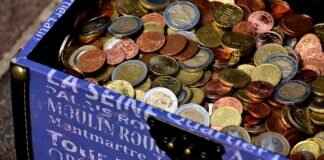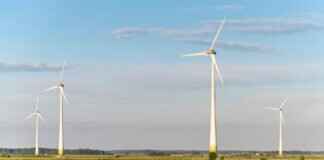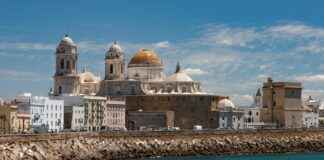Planning a party can be both exciting and overwhelming, especially when it comes to entertainment options. One popular choice for children’s parties is a bounce house. However, many people wonder, how much does it cost to rent a bounce house? This article delves into the various costs associated with renting a bounce house, including the factors that influence pricing, the types of bounce houses available, and tips for securing the best deals.
The cost of renting a bounce house can vary widely based on several key factors. Understanding these elements can help you budget effectively and make an informed decision.
- Location: The geographical area where you rent a bounce house significantly impacts pricing. Urban areas often have higher rates due to increased demand and operational costs.
- Rental Duration: The length of time you plan to rent the bounce house can affect the overall cost. Most companies offer hourly rates, with discounts for longer rental periods.
- Special Features: Bounce houses with additional features, such as slides or themed designs, typically come at a higher rental price.
In urban settings, rental prices are generally higher due to increased demand and operational expenses. In contrast, rural areas may offer more competitive rates, making it essential to consider your location when budgeting for a bounce house rental.
Pricing can also fluctuate based on the season. Renting a bounce house during peak seasons, like summer or holidays, may incur higher rates compared to off-peak times. Planning your event during less busy periods can lead to significant savings.
When it comes to bounce houses, there are various types to choose from, catering to different age groups and themes. Here’s a look at some popular options:
These are the most common type of bounce houses, suitable for all ages. They typically feature a simple design and are often the most cost-effective option.
Inflatable slides and combo units, which combine bouncing areas with slides, usually come at a higher rental price due to their larger size and added features. They provide extra fun but should be factored into your budget accordingly.
In addition to the base rental price, there are often extra costs to consider. Here are some common additional charges:
Many rental companies charge for delivery and setup, especially if the bounce house needs to be transported over long distances. Understanding these fees upfront can help you budget effectively and avoid surprises.
Some rental companies may require you to purchase insurance or a damage waiver, which can add to the overall cost. It’s important to inquire about these options when renting to ensure you’re fully informed about potential expenses.
Finding the best deals on bounce house rentals requires some research and planning. Here are practical tips to help you secure the best rates:
Take the time to compare prices and services from various rental companies. Look for customer reviews to gauge reliability and service quality. This can lead to significant savings and a better overall experience.
Many rental companies offer seasonal discounts or promotional rates. Don’t hesitate to inquire about any available deals that could lower your rental costs. This proactive approach can help you stay within your budget.
Safety is paramount when renting a bounce house. Here are essential safety measures to ensure a fun and secure experience:
Selecting a reputable rental company with a history of safety can help mitigate risks. Look for companies that adhere to safety regulations and provide clean, well-maintained equipment.
Proper supervision of children while using the bounce house is crucial. Establishing usage guidelines can help prevent accidents and ensure a safe environment for all participants.
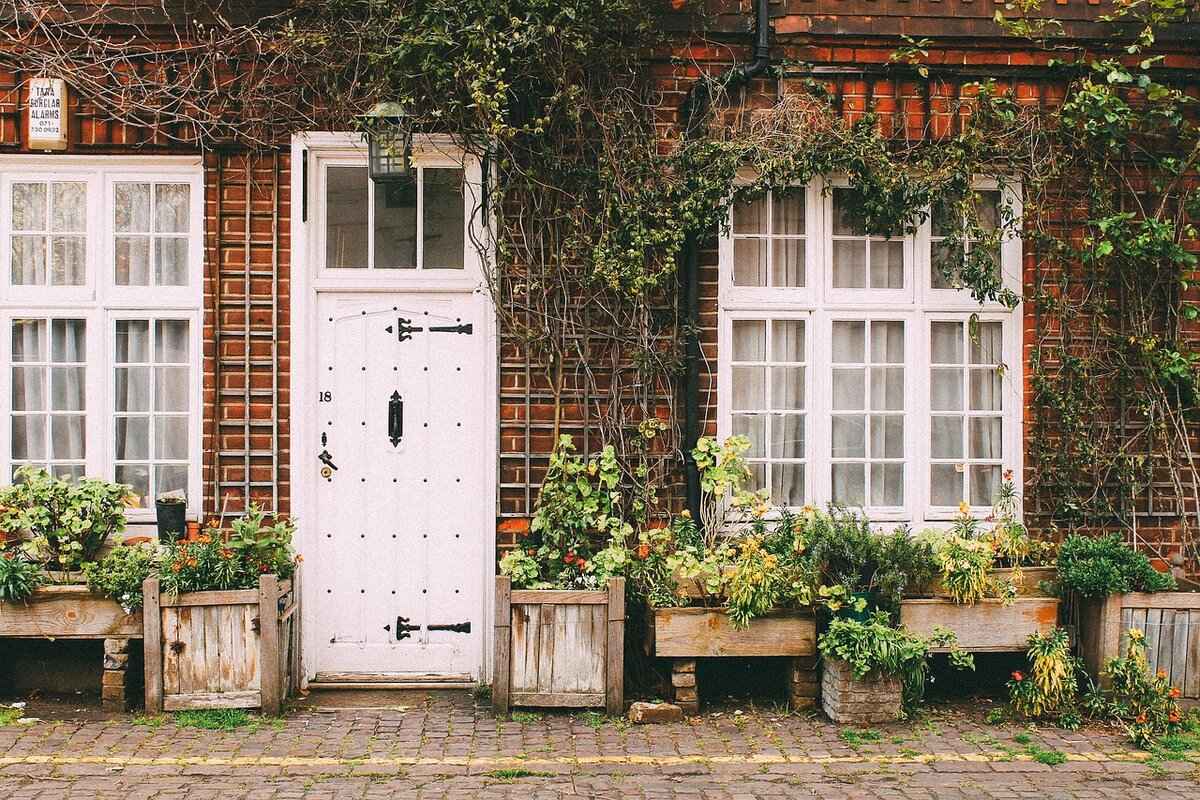
Understanding Bounce House Rental Costs
When planning a party or event, one of the most exciting attractions you can include is a bounce house. However, before making a reservation, it’s essential to understand the various factors that influence bounce house rental costs. This section will explore the critical elements that determine the overall price, ensuring you are well-informed for your next celebration.
Bounce house rental prices can fluctuate significantly based on several factors. Understanding these variables will help you budget effectively and choose the right option for your needs.
- Location: The geographical area where you plan to rent a bounce house plays a crucial role in pricing. Urban centers typically have higher rental costs due to increased demand and operational expenses. In contrast, rural locations may offer more competitive rates.
- Rental Duration: The length of time you intend to use the bounce house can also impact the cost. Most rental companies charge hourly rates, with discounts available for longer rental periods. It’s wise to assess how long you’ll need the bounce house to avoid unnecessary expenses.
- Type of Bounce House: The kind of bounce house you choose can significantly affect the price. Standard bounce houses are generally more affordable, while themed bounce houses or combo units that include slides tend to be pricier due to their added features.
- Seasonal Demand: Prices can vary with the seasons. Renting a bounce house during peak times, such as summer months or holidays, often results in higher rates. Conversely, off-peak seasons may yield better deals.
Besides these primary factors, there are additional costs that you should consider when budgeting for a bounce house rental.
| Additional Costs | Description |
|---|---|
| Delivery and Setup Fees | Many rental companies charge for delivery and setup, especially for longer distances. Understanding these costs upfront can help you plan your budget accordingly. |
| Insurance and Damage Waivers | Some companies may require renters to purchase insurance or damage waivers, which can add to the overall rental cost. Be sure to inquire about these options when making your reservation. |
In summary, understanding the costs associated with bounce house rentals is vital for effective planning. By considering factors such as location, rental duration, type of bounce house, seasonal demand, and additional costs, you can make an informed decision that aligns with your budget. This knowledge not only helps you avoid surprises but also ensures that you select the best bounce house to create a memorable experience for your guests.
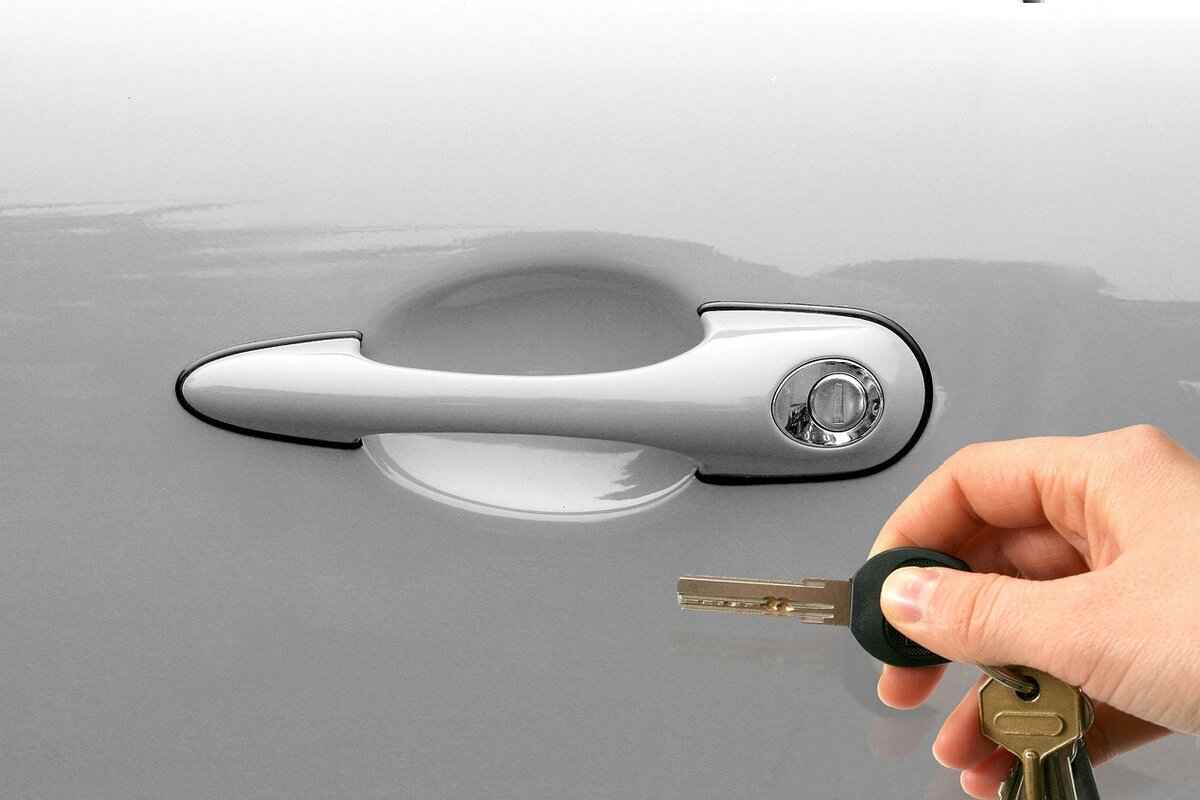
Factors Influencing Bounce House Rental Prices
When planning a party or event, one of the most exciting additions can be a bounce house. However, understanding the is crucial for budgeting effectively. Several elements come into play when determining the final rental price, including location, rental duration, and special features. This article delves into these factors to help you make an informed decision.
The geographical area where you rent a bounce house significantly affects the rental cost. Typically, urban areas command higher prices due to increased demand and operational expenses associated with city living. In contrast, rural locations may offer more competitive rates, as the demand is generally lower.
- Urban Pricing: Bounce houses in metropolitan areas often come with premium pricing, reflecting the higher costs of living and business operations.
- Rural Pricing: In less populated regions, rental companies may provide lower rates to attract customers, making it a more budget-friendly option.
Another critical aspect to consider is seasonal demand. During peak seasons, such as summer or holidays, rental prices can surge due to increased demand. Conversely, off-peak times may present opportunities for lower rental rates. Planning your event during these quieter periods could save you money.
The length of time you intend to rent the bounce house also plays a significant role in determining the price. Most rental companies offer pricing structures based on hourly rates, with discounts available for longer rentals. For example, a four-hour rental might be priced lower per hour than a two-hour rental. It’s beneficial to assess how long you’ll need the bounce house to find the best deal.
Many bounce houses come equipped with special features that can elevate the rental price. Options such as slides, obstacle courses, and themed designs often incur additional costs. Here are some common add-ons:
- Inflatable Slides: These can significantly increase the fun factor but also the rental price.
- Combo Units: Bounce houses that include slides and climbing walls typically cost more than standard models.
- Custom Themes: Bounce houses themed around popular characters or events may also carry a premium.
Many rental companies charge for delivery and setup, particularly if the bounce house needs to be transported over long distances. Understanding these fees upfront can help you budget effectively. Some companies may offer free delivery within a certain radius, while others may have fixed fees based on distance.
It’s also essential to consider insurance and damage waivers. Some rental companies require you to purchase insurance or a damage waiver, which can add to your overall costs. Always inquire about these options and read the fine print to avoid unexpected charges.
In summary, understanding the various factors influencing bounce house rental prices can help you make more informed choices when planning your event. By considering location, rental duration, special features, delivery fees, and insurance options, you can better manage your budget and ensure a fun-filled experience for all your guests.
Location and Its Impact on Pricing
When it comes to renting a bounce house, location is one of the most significant factors affecting the overall cost. Understanding how geographical differences influence pricing can help you make an informed decision and budget effectively for your next event.
In general, bounce house rental prices are higher in urban areas compared to their rural counterparts. This price disparity is primarily due to several key factors:
- Demand: Urban areas typically have a larger population, leading to increased demand for party rentals, including bounce houses. This high demand often results in elevated rental prices.
- Operational Costs: Rental companies operating in cities face higher overhead costs, such as rent for storage facilities, transportation expenses, and labor costs. These expenses are usually passed on to the consumer.
- Competition: While urban areas have more rental options, the competition can also drive prices up as companies strive to maintain their market share.
In contrast, rural locations may offer more competitive rates for bounce house rentals. The lower demand and reduced operational costs can lead to significant savings for customers. However, it’s essential to consider that the selection of available bounce houses may be more limited in these areas.
Additionally, the seasonal demand for bounce houses can also impact pricing. For instance, during peak seasons, such as summer and major holidays, rental prices may increase due to heightened demand. Conversely, renting during the off-peak season can yield substantial discounts, making it a more budget-friendly option.
Another aspect to consider is the rental duration. Most rental companies charge by the hour, with the possibility of offering discounts for longer rental periods. If you plan to host an all-day event, inquire about pricing structures that could save you money in the long run.
Furthermore, it’s important to note that bounce house rental companies may have different pricing models based on their geographical location. For example, a company in a high-demand city might charge significantly more than one in a smaller town, even for similar equipment. Therefore, it’s advisable to compare prices from multiple rental companies to find the best deal.
In summary, the location where you rent a bounce house plays a crucial role in determining its cost. Urban areas often have higher rental prices due to factors such as demand, operational costs, and competition. On the other hand, rural locations may provide more affordable options, albeit with potentially limited choices. By understanding these dynamics, you can better navigate the bounce house rental market and find a solution that fits your budget.
Urban vs. Rural Pricing
When considering the rental of a bounce house, one of the most significant factors influencing the cost is the location. The geographical area where you plan to host your event can greatly affect the price you pay for a bounce house. In general, urban settings tend to present higher rental prices compared to their rural counterparts.
Urban Bounce House Rentals
In urban environments, the demand for bounce houses is typically much higher, especially during peak seasons like summer and holiday weekends. This increased demand can lead to elevated rental prices. Additionally, urban areas often come with higher operational costs for rental companies, including transportation, labor, and insurance. These costs are usually passed on to the consumer. For example, a bounce house that might cost $150 to rent in a rural area could easily be priced at $250 or more in a city, depending on the specific market conditions.
Rural Bounce House Rentals
Conversely, in rural areas, the competition among rental companies may be less fierce, leading to more competitive pricing. Rental companies in these regions often have lower overhead costs, which allows them to offer more attractive rates. As a result, you may find that the same bounce house rental is significantly cheaper in a rural setting, sometimes costing as little as $100 or even less. This affordability can make rural areas an appealing option for families or event planners on a budget.
Factors Contributing to Pricing Differences
- Demand: Urban areas often experience higher demand, leading to increased rental prices.
- Operational Costs: Rental companies in cities face higher costs for transportation and insurance.
- Competition: Rural areas may have fewer rental companies, but they often compete on price, driving costs down.
Seasonality and Its Effects
Another important factor to consider is the seasonal demand for bounce house rentals. In urban areas, the peak season can see prices surge due to the influx of events such as birthday parties, festivals, and community gatherings. Conversely, in rural areas, while there may still be seasonal spikes, the overall pricing may remain more stable due to less intense competition.
Conclusion
In summary, the location of your event plays a crucial role in determining the cost of renting a bounce house. Urban settings usually command higher prices due to increased demand and operational costs, while rural areas offer more competitive rates. Understanding these dynamics can help you make an informed decision and potentially save money on your bounce house rental.
Seasonal Pricing Trends
When planning a party or event, understanding the associated with renting a bounce house is crucial. Many factors influence rental costs, and being aware of these can help you make informed decisions and potentially save money.
One of the most significant factors affecting bounce house rental prices is seasonal demand. During peak seasons, such as summer, demand for bounce houses skyrockets. This increased demand often leads to higher rental rates. For instance, families planning outdoor parties during warm months are more likely to seek out inflatable rentals, resulting in a competitive market where prices can surge. Conversely, during off-peak seasons like late fall or winter, rental prices tend to drop due to lower demand.
In addition to summer, other occasions such as holidays and local events can also drive up prices. Events like school fairs, community festivals, and birthday parties can create spikes in demand. Rental companies often adjust their pricing to reflect these trends, making it essential for consumers to plan ahead. If you have flexibility in your schedule, consider renting during less popular months or on weekdays to take advantage of lower rates.
| Season | Typical Price Range |
|---|---|
| Spring | $150 – $300 |
| Summer | $200 – $500 |
| Fall | $100 – $250 |
| Winter | $75 – $200 |
Furthermore, rental companies often implement dynamic pricing strategies, similar to those used in the airline and hotel industries. This means that prices can fluctuate based on factors such as availability, time of booking, and proximity to the rental date. For example, if you wait until the last minute to book a bounce house during peak season, you may end up paying significantly more than if you had booked weeks in advance.
Another consideration is the type of bounce house you choose to rent. Specialty bounce houses, such as those featuring popular characters or themes, tend to be more expensive, especially during peak seasons. Therefore, if you are looking to save money, opting for a standard bounce house may be a more budget-friendly choice, particularly during high-demand periods.
To navigate these seasonal pricing trends effectively, it’s advisable to research multiple rental options and compare rates across different companies. Look for customer reviews and testimonials to gauge the reliability and quality of service provided by each company. Additionally, don’t hesitate to ask about any available discounts or promotions that could help reduce costs.
In conclusion, understanding the seasonal pricing trends of bounce house rentals can significantly impact your party budget. By planning ahead, being flexible with your rental dates, and exploring various options, you can enjoy the fun of a bounce house without breaking the bank.
Rental Duration and Pricing Structures
When planning a party or event, one of the most exciting attractions you can consider is a bounce house. However, understanding the rental duration and its impact on pricing is crucial to making an informed decision.
The length of time you intend to rent the bounce house can significantly influence the overall cost. Most rental companies operate on an hourly rate basis, which means that the longer you rent, the more you will pay. However, many companies offer discounts for longer rentals, making it cost-effective to keep the bounce house for an extended period.
Typically, bounce house rental companies will have a standard pricing structure that includes:
- Hourly Rates: The base cost for renting a bounce house for a set number of hours.
- Half-Day Rates: A common option for events lasting around four hours, often providing a slight discount compared to hourly rates.
- Full-Day Rates: For events that last a full day, many rental companies offer a flat rate that can be more economical than renting by the hour.
Understanding these options can help you choose the best rental duration for your needs. For instance, if you are hosting a birthday party that lasts several hours, opting for a half-day or full-day rental may save you money compared to paying hourly.
Additionally, some companies may provide special packages that include multiple hours or add-ons, such as inflatable games or party supplies, at a discounted rate. It’s essential to inquire about these packages when making your reservation.
Another factor to consider is the time of year you plan to rent the bounce house. During peak seasons, such as summer or holidays, rental prices may rise due to increased demand. If possible, consider scheduling your event during off-peak times to take advantage of lower rates.
Furthermore, if your event is planned for a weekend, it’s advisable to book well in advance, as many rental companies experience high demand during these times. Early booking can also provide you with the opportunity to negotiate better rates or secure your preferred bounce house model.
In conclusion, understanding the rental duration and its pricing structures can significantly impact your overall budget for a bounce house rental. By being aware of hourly rates, potential discounts, and seasonal pricing trends, you can make a well-informed decision that enhances your event without breaking the bank. Always remember to compare different rental companies and explore various options to find the best deal for your special occasion.

Types of Bounce Houses Available
When planning a party or event, bounce houses can add a fun and exciting atmosphere for guests of all ages. However, it’s essential to choose the right type of bounce house that caters to your specific needs. In this section, we will explore the various types of bounce houses available for rent, highlighting their unique features, themes, and suitability for different age groups.
- Standard Bounce Houses:
These are the classic inflatable structures that most people think of when they hear “bounce house.” They are typically rectangular or square in shape and feature a large jumping area. Standard bounce houses are suitable for children of all ages and are often available in various colors and designs, making them a versatile choice for any event.
- Themed Bounce Houses:
Themed bounce houses come in a variety of designs, including popular characters from movies, cartoons, and fairy tales. These bounce houses are perfect for birthday parties and can create a magical atmosphere for young children. Whether it’s a princess castle or a superhero fortress, themed bounce houses can enhance the overall party experience.
- Inflatable Slides:
For those looking to add an extra thrill to their event, inflatable slides are an excellent option. These structures can be standalone slides or combined with bounce houses for a combo unit. They are typically taller and provide a fun way for kids to climb and slide down safely, making them a favorite at summer events.
- Obstacle Courses:
Obstacle courses are designed for more active play and are suitable for older children and teenagers. These bounce houses feature various challenges, such as tunnels, climbing walls, and slides. They are perfect for competitive play and can keep kids entertained for hours.
- Wet and Dry Combos:
These versatile units can be used both as a bounce house and as a water slide when connected to a water source. Wet and dry combos are ideal for hot summer days, providing a refreshing way to cool off while enjoying the fun of bouncing and sliding.
- Interactive Games:
For a more engaging experience, interactive bounce houses come equipped with games like basketball hoops, jousting arenas, or climbing walls. These inflatable units are designed to keep children active and entertained, making them a hit at school events or community gatherings.
In summary, when selecting a bounce house for your next event, consider the age group of your guests and the theme of your party. Each type of bounce house offers unique features and benefits, ensuring that there is something for everyone. By understanding the different options available, you can make an informed decision that will create lasting memories for your guests.
Standard Bounce Houses
When it comes to planning a fun-filled event, are a popular choice among families and event organizers. These inflatable structures are not only entertaining but also provide a safe environment for children and adults alike. Their design is typically straightforward, making them easy to set up and take down, which is a significant advantage for busy hosts.
are characterized by their spacious interiors, allowing multiple jumpers to enjoy at once. They are designed to accommodate various age groups, making them a versatile option for birthday parties, community events, and family gatherings. With their bright colors and inviting appearance, they attract kids instantly, ensuring that your event will be lively and engaging.
One of the most appealing aspects of standard bounce houses is their cost-effectiveness. Compared to other inflatable attractions, such as slides or obstacle courses, standard bounce houses are generally more affordable to rent. This makes them an excellent choice for those on a budget, allowing you to allocate funds to other aspects of your event, such as food, decorations, or entertainment.
| Feature | Details |
|---|---|
| Design | Simple and colorful |
| Capacity | Varies, typically accommodates 8-10 children |
| Age Suitability | All ages |
| Rental Price | Generally lower than themed or combo units |
In addition to their affordability, standard bounce houses are also easy to maintain. Most rental companies ensure that their equipment is cleaned and sanitized before each rental, providing peace of mind for parents concerned about hygiene. Furthermore, the simplicity of the design means fewer parts that could potentially malfunction, leading to a smoother rental experience.
For those considering a bounce house rental, it’s essential to keep in mind the space requirements. Standard bounce houses need ample room for setup, including a safe perimeter to prevent accidents. It’s advisable to measure the area where you plan to place the bounce house and discuss it with the rental company to ensure a proper fit.
Moreover, while standard bounce houses are designed for safety, supervision is crucial. Event organizers should ensure that there is adequate adult supervision to monitor the activity and enforce rules, such as limiting the number of jumpers at one time. This helps prevent injuries and ensures that everyone has a safe and enjoyable experience.
In summary, standard bounce houses offer a fantastic way to enhance any gathering. Their affordability, safety, and universal appeal make them a go-to choice for many. Whether you are planning a small birthday party or a larger community event, these inflatable structures are sure to bring joy and excitement to your guests.
Inflatable Slides and Combos
When it comes to planning a party or event, inflatable slides and combo units are among the most exciting attractions you can rent. These inflatable structures not only provide a thrilling slide experience but also include bouncing areas, making them a favorite for children of all ages. However, it’s essential to understand that the rental price for these units tends to be higher compared to standard bounce houses due to their larger size and added features.
One of the primary reasons for the increased cost is the complexity of design. Inflatable slides and combo units are engineered to accommodate multiple activities, which requires more material and labor in their construction. This means that rental companies often charge a premium for these versatile units. In addition, the larger footprint of these inflatables necessitates more space for setup, which can also influence rental costs.
Moreover, the added features of combo units can significantly enhance the overall experience. Many of these units come equipped with various themes, vibrant colors, and safety features such as reinforced seams and safety nets, all of which contribute to their appeal. The additional safety measures are particularly important for parents who want peace of mind while their children enjoy the attractions.
| Type of Inflatable | Average Rental Price | Features |
|---|---|---|
| Standard Bounce House | $150 – $300 | Basic bouncing area |
| Inflatable Slide | $200 – $400 | Slide only, various heights |
| Combo Unit | $300 – $600 | Bouncing area + slide + themed designs |
Another factor influencing the rental price is location. Rental companies in urban areas may charge more due to higher demand and operational costs. Conversely, if you’re in a rural area, you might find more competitive rates. Additionally, prices can fluctuate based on the season; renting during peak times, such as summer or holidays, often comes with higher rates.
- Delivery Fees: Many companies charge extra for delivering and setting up the inflatable. This fee can vary based on the distance from the rental company’s location.
- Insurance Costs: Some rental companies require renters to purchase insurance or a damage waiver, which can add to your total cost.
- Cleaning Fees: Ensure to ask if there are any cleaning fees associated with the rental, especially if the unit is returned dirty.
To maximize your budget, it’s advisable to compare various rental companies. Look for those that offer seasonal discounts or promotions, as these can significantly reduce your overall expenses. Additionally, reading customer reviews can provide insight into the reliability and quality of service offered by different companies.
In summary, while inflatable slides and combo units may come at a higher rental price, their unique features and the enjoyment they provide often justify the cost. By considering factors such as location, rental duration, and additional fees, you can make an informed decision that aligns with your budget and ensures a memorable experience for your guests.

Additional Costs to Consider
When renting a bounce house, it’s essential to look beyond the base rental price. While the initial quote may seem reasonable, there are often additional costs that can significantly impact your total expenditure. This section delves into common extra charges that may arise during the rental process, ensuring that you are fully prepared for your budgeting.
One of the most prevalent additional costs is the delivery and setup fee. Many rental companies charge for the transportation of the bounce house to your chosen location, particularly if it is a considerable distance from their base. This fee can vary based on your location, the distance traveled, and any specific requirements for setup. It is advisable to inquire about these fees upfront to avoid surprises later.
Another potential expense to consider is the cost of insurance or damage waivers. Some rental companies require customers to purchase insurance to cover any potential damages to the bounce house during the rental period. This can be an essential safeguard, particularly for large events with many participants. Always ask about the terms of the insurance and whether it is mandatory or optional.
In some cases, companies may charge a cleaning fee if the bounce house is returned in less-than-ideal condition. To avoid this cost, it is wise to ensure that the bounce house is kept clean and free from excessive dirt or debris during your event. Understanding the cleaning policy of the rental company can help you maintain the bounce house’s condition and avoid additional charges.
If you plan to keep the bounce house for longer than the agreed rental period, be aware that most companies impose late return fees. These fees can accumulate quickly, so it is crucial to communicate with the rental company if you anticipate needing the bounce house for an extended time. Discussing your plans ahead of time can help you avoid unexpected costs.
Many rental companies require a security deposit to secure your reservation. This deposit is usually refundable, provided the bounce house is returned in good condition. However, if there is any damage or if the rental terms are not met, this deposit may be forfeited. Always clarify the terms regarding the deposit to ensure you understand how it works.
Rental companies often offer optional add-ons that can enhance your bounce house experience but also increase the overall cost. These may include additional inflatable features, themed decorations, or even staffing for supervision. Before making a decision, evaluate whether these extras are necessary for your event and if they fit within your budget.
Lastly, don’t forget to factor in any applicable taxes and fees that may apply to your rental. Depending on your location, there may be local taxes that are added to the rental cost, which can affect your total bill. Always confirm the final price with the rental company, including any taxes, to ensure you have a complete understanding of the costs involved.
By being aware of these potential additional costs, you can better prepare for your bounce house rental and ensure that your event remains within budget. Always communicate openly with the rental company to clarify any uncertainties regarding fees and charges.
Delivery and Setup Fees
When planning a party or event, renting a bounce house can be a fantastic addition to entertain guests, especially children. However, it’s essential to understand the various costs involved in this rental process, particularly the delivery and setup fees that many rental companies impose.
Many rental companies charge for delivery and setup, especially if the bounce house needs to be transported over long distances. These fees can vary significantly based on several factors:
- Distance: The further the bounce house has to be transported, the higher the delivery fee. Companies often have set rates based on mileage.
- Location: Urban areas may experience higher delivery charges due to traffic and logistical challenges, while rural areas might have lower rates.
- Setup Complexity: Some bounce houses, especially larger or more complex models, require more time and effort to set up, which can lead to increased setup fees.
Understanding these fees upfront can help you budget effectively and avoid unexpected costs. It’s advisable to ask rental companies for a detailed breakdown of these charges when you inquire about pricing.
In some cases, you may have room to negotiate delivery and setup fees. Here are a few tips:
- Bundle Services: If you’re renting multiple items, such as tables and chairs alongside the bounce house, ask if the company can offer a discount on delivery.
- Off-Peak Rentals: Consider scheduling your rental during off-peak times, which may lead to lower delivery fees as demand decreases.
- Local Companies: Look for rental companies based closer to your venue to minimize transportation costs.
Before finalizing your rental, it’s crucial to clarify all potential fees with the rental company. Some companies might offer a flat rate for delivery and setup, while others may charge based on distance and time. Always ask:
- What is included in the delivery fee? Ensure you know whether setup and takedown are part of the cost.
- Are there additional charges for late-night pickups? Some companies may have policies regarding late returns that incur extra fees.
- Is there a minimum rental period? Knowing this can help you plan your event timeline effectively.
By addressing these questions, you can gain a clearer understanding of the total costs involved and avoid any unpleasant surprises on the day of your event. Additionally, always read the rental agreement thoroughly to ensure that all fees are transparent and justified.
In conclusion, while delivery and setup fees can add to the overall cost of renting a bounce house, being informed and proactive can help you manage these expenses effectively. By planning ahead and communicating clearly with rental companies, you can ensure a fun and memorable experience for all your guests without breaking the bank.
Insurance and Damage Waivers
When planning to rent a bounce house for your next event, it’s essential to consider all potential costs involved, including insurance and damage waivers. Many rental companies require renters to either purchase insurance or a damage waiver, which can significantly add to the overall expense. Understanding these options is crucial for budgeting and ensuring a smooth rental experience.
Insurance and damage waivers serve as protective measures for both the renter and the rental company. While insurance provides coverage in case of accidents or damages, a damage waiver typically covers minor damages that may occur during the rental period. It’s important to know what each option entails before making a decision.
- Liability Insurance: This type of insurance covers injuries that may occur during the use of the bounce house. It protects you from potential legal claims that could arise from accidents.
- Property Damage Coverage: This coverage protects against damages to the bounce house itself. If the equipment is damaged due to negligence or misuse, this insurance can help cover repair costs.
- Damage Waiver: A damage waiver allows you to avoid paying for minor damages that might occur during the rental. However, it generally does not cover intentional damage or gross negligence.
While purchasing insurance or a damage waiver may seem like an additional expense, it can save you money and hassle in the long run. Accidents can happen, especially at events with children, and the costs associated with damages or injuries can be substantial. By opting for insurance or a damage waiver, you can ensure that you are protected against unforeseen circumstances.
Before finalizing your rental agreement, it’s vital to inquire about the insurance and damage waiver policies of the rental company. Ask specific questions such as:
- What types of insurance are available?
- What does the damage waiver cover?
- Are there any exclusions or limitations?
- How does the claim process work in case of an incident?
Understanding these aspects will help you make an informed decision that aligns with your needs and budget.
The cost of insurance or a damage waiver can vary depending on the rental company and the specific coverage options they offer. It’s advisable to compare these costs across different companies to find the best deal. Some companies may include a basic damage waiver in their rental price, while others might charge an additional fee for comprehensive insurance coverage.
In conclusion, while insurance and damage waivers may add to the initial cost of renting a bounce house, they provide essential protection that can save you from unexpected expenses. Always take the time to review and understand the policies of your chosen rental company to ensure a fun and worry-free event.
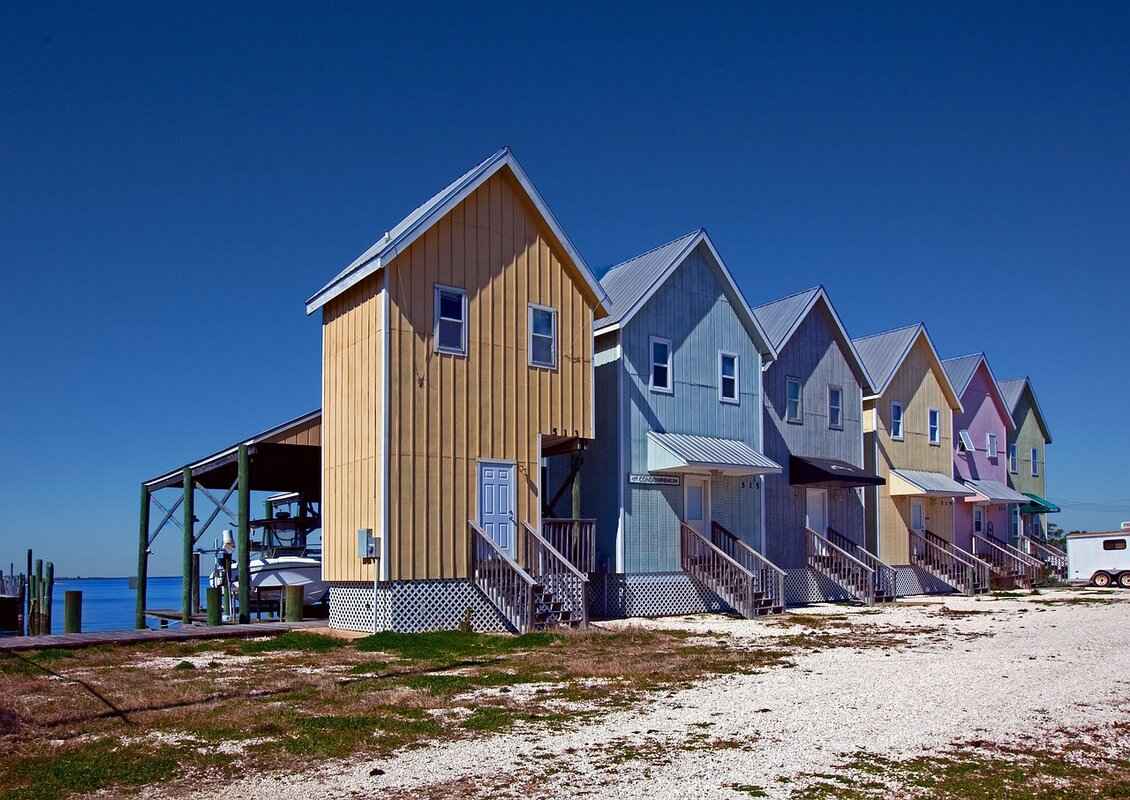
Tips for Finding the Best Bounce House Rental Deals
When planning a party, renting a bounce house can be a fantastic way to entertain children and create a fun atmosphere. However, finding the best deals on bounce house rentals requires some research and strategic planning. Here are some practical tips to help you secure the best rates without compromising on quality.
- Research Local Rental Companies: Start by compiling a list of local bounce house rental companies. Check their websites and social media pages for pricing, available options, and customer reviews. This will give you a good sense of the market.
- Compare Prices: Don’t settle for the first company you find. Comparing prices across multiple rental companies can uncover significant savings. Look for similar models and features to ensure you’re making an apples-to-apples comparison.
- Inquire About Package Deals: Some companies offer package deals that include additional items such as tables, chairs, or even party supplies. These packages can be more cost-effective than renting items separately.
- Ask About Discounts: Many rental companies provide seasonal discounts, promotional rates, or even loyalty discounts for repeat customers. Always ask if any discounts are available, as this could lower your overall costs.
- Consider Off-Peak Rentals: Renting during off-peak times, such as weekdays or during the shoulder season, can lead to lower rates. If your schedule allows, consider planning your event during these times.
- Check for Hidden Fees: Always read the fine print and ask about any potential hidden fees, such as delivery charges, setup fees, or cleaning deposits. Understanding the total cost upfront can help you avoid surprises later.
- Negotiate: Don’t hesitate to negotiate the price with rental companies, especially if you are renting multiple items or booking for an extended period. Many companies are willing to work with you to secure your business.
- Read Customer Reviews: Before making a final decision, read customer reviews and testimonials. This will provide insight into the reliability and quality of service offered by the rental company.
By following these tips, you can enhance your chances of finding an affordable and reliable bounce house rental for your next event. Remember, thorough research and strategic planning are key components to securing the best deals.
Compare Multiple Rental Companies
When planning a party or event, renting a bounce house can add a fun and exciting element for children and adults alike. However, the cost of renting a bounce house can vary significantly based on several factors. One of the most effective strategies for securing the best rental deal is to .
By taking the time to evaluate various rental options, you can identify significant savings and ensure you are getting the best value for your money. Here are some key points to consider when comparing rental companies:
- Price Comparison: Start by gathering quotes from different rental companies. Prices can fluctuate based on location, the type of bounce house, and the duration of rental. By obtaining multiple quotes, you can pinpoint the most competitive rates.
- Services Offered: Not all rental companies provide the same level of service. Some may include delivery and setup in their pricing, while others may charge extra. Pay attention to what each company includes in their package to make an informed comparison.
- Customer Reviews: Look for customer feedback and reviews online. Websites like Yelp, Google Reviews, and social media platforms can provide insight into the reliability and quality of service offered by different companies. Positive reviews can indicate a trustworthy provider.
- Insurance and Safety: Ensure that the rental company has proper insurance coverage and adheres to safety regulations. This is crucial for the safety of the children using the bounce house. Companies that prioritize safety will often have better reviews and a solid reputation.
- Promotions and Discounts: Many rental companies offer seasonal discounts or promotions. Inquire about any available deals that could lower your rental costs. Some companies may also offer discounts for longer rental periods or package deals that include additional equipment.
Additionally, consider the type of bounce house you wish to rent. Standard bounce houses typically have lower rental prices, while inflatable slides and combo units may be more expensive due to their added features. Knowing what you want will help you make a more effective comparison.
Another essential aspect to consider is the location of the rental company. Urban areas may have higher prices due to demand and operational costs, while rural areas might offer more competitive rates. This geographical difference can be significant and should not be overlooked when making your decision.
Lastly, take the time to communicate directly with rental companies. Ask questions about their policies, any hidden fees, and their experience in the industry. A company that is transparent and responsive to inquiries is likely to provide a better overall experience.
In summary, comparing multiple rental companies is a vital step in securing the best bounce house rental deal. By evaluating prices, services, customer reviews, and safety measures, you can make an informed decision that not only saves you money but also ensures a fun and safe experience for all attendees at your event.
Ask About Discounts and Promotions
When planning an event, one of the most significant expenses can be the rental of entertainment equipment, such as bounce houses. However, savvy party planners know that there are ways to reduce these costs. One effective strategy is to offered by rental companies. This section will explore various ways to capitalize on these opportunities.
Many rental companies provide seasonal discounts that can significantly lower your rental costs. For instance, during the off-peak seasons, such as spring or fall, companies may offer lower rates to encourage rentals. Additionally, holidays and special occasions often come with promotional deals. It’s essential to inquire about these seasonal offers when you contact rental companies.
Another common promotional strategy is to offer package deals. Some companies may bundle multiple items together, such as a bounce house, inflatable slide, and concession machines, at a discounted rate. This not only saves you money but also simplifies the planning process by providing a comprehensive entertainment solution for your event.
Additionally, many rental companies have loyalty programs or discounts for repeat customers. If you have rented from a company in the past, it’s worth asking if they offer any loyalty incentives. These can range from percentage discounts to free add-ons for your next rental, making it beneficial to establish a relationship with a reliable provider.
Don’t overlook the power of social media promotions. Many rental companies use platforms like Facebook and Instagram to announce limited-time offers or exclusive discounts for their followers. By following these companies online, you can stay updated on the latest deals and potentially save on your rental costs.
Moreover, consider asking about referral discounts. If you refer a friend who then rents a bounce house, some companies will offer you both a discount. This can be an excellent way to save money while also helping friends plan their events.
It’s also advisable to negotiate directly with the rental company. If you find a better price elsewhere, don’t hesitate to mention it. Many companies are willing to match or beat competitor prices to secure your business. Being upfront about your budget can lead to unexpected savings.
Lastly, keep an eye out for local events or community programs that may offer bounce house rentals at discounted rates. Sometimes local community centers or schools partner with rental companies to provide affordable entertainment options for residents. This can be a great way to access quality rentals at a lower cost.
In summary, asking about discounts and promotions is a smart strategy when renting a bounce house. By exploring seasonal offers, package deals, loyalty programs, and social media promotions, you can significantly reduce your rental expenses. Additionally, negotiating and referring friends can further enhance your savings. Always remember to ask the right questions and do some research to ensure you’re getting the best possible deal for your next event.

Safety Considerations When Renting a Bounce House
Safety is paramount when renting a bounce house. Ensuring the safety of children and guests should be your top priority. This section discusses essential safety measures and guidelines to ensure a fun and secure experience.
When selecting a bounce house rental company, it is crucial to choose one with a solid reputation for safety. Look for companies that:
- Adhere to safety regulations: Ensure that the company complies with local safety standards and guidelines.
- Provide clean and well-maintained equipment: Inspect the bounce house for any signs of wear or damage before renting.
- Have positive customer reviews: Research feedback from previous customers to gauge their reliability and safety practices.
Proper supervision is essential to maintain a safe environment for children using the bounce house. Here are some tips for effective supervision:
- Designate a responsible adult: Assign someone to monitor the bounce house at all times, ensuring that children follow safety rules.
- Limit the number of users: Establish a maximum number of children allowed in the bounce house at one time to prevent overcrowding and potential accidents.
- Enforce age and size restrictions: Ensure that children of similar ages and sizes are allowed to play together to minimize the risk of injury.
Setting clear usage guidelines can significantly enhance safety. Consider implementing the following rules:
- No flips or rough play: Discourage acrobatics and roughhousing to prevent falls and injuries.
- Remove shoes and sharp objects: Ensure that children remove their shoes and any items that could cause injury before entering the bounce house.
- Stay hydrated: Encourage children to take breaks and drink water, especially during hot weather.
Weather can greatly impact the safety of bounce house rentals. Keep the following in mind:
- Avoid windy conditions: High winds can pose a risk to inflatable structures. Ensure that the bounce house is secured and consider postponing if wind speeds are excessive.
- Monitor for rain: Wet surfaces can lead to slips and falls. If rain is forecasted, it may be best to reschedule the rental.
Being prepared for emergencies is another critical aspect of bounce house safety. Here are some steps to take:
- Have a first aid kit on hand: Ensure that a basic first aid kit is readily available on-site in case of minor injuries.
- Establish an emergency plan: Communicate with all supervising adults about what to do in case of an emergency, including evacuation procedures.
- Know the contact details for emergency services: Keep emergency contact numbers easily accessible in case of serious incidents.
By prioritizing safety and adhering to these guidelines, you can ensure a fun and secure bounce house experience for everyone involved. Remember, a little preparation goes a long way in preventing accidents and creating enjoyable memories.
Choosing a Reputable Rental Company
When it comes to renting a bounce house, is crucial for ensuring safety and enjoyment during your event. A reliable company not only provides quality equipment but also adheres to necessary safety regulations, significantly reducing potential risks associated with inflatable rentals.
Here are some key factors to consider when selecting a rental company:
- Company History and Reputation: Look for companies that have a proven track record in the industry. Reading customer reviews and testimonials can provide insights into their reliability and the quality of their service.
- Safety Compliance: Ensure that the rental company complies with local and national safety regulations. This includes having the necessary certifications and licenses, which demonstrate their commitment to safety standards.
- Equipment Maintenance: A reputable company will maintain their equipment regularly. Inquire about their cleaning and maintenance procedures to ensure that the bounce houses are clean and well-maintained. This not only enhances safety but also prolongs the lifespan of the equipment.
- Insurance Coverage: Check if the rental company carries liability insurance. This is essential as it protects you from potential accidents or injuries that may occur during the rental period.
- Clear Contract Terms: A reputable rental company will provide a clear and detailed contract outlining all terms and conditions. Ensure you understand the rental agreement, including cancellation policies and any additional fees that may apply.
Furthermore, it’s advisable to ask questions about the setup and takedown processes. A professional company will handle these logistics efficiently, ensuring that everything is set up correctly and safely before the event begins. They should also provide clear instructions on how to use the bounce house safely, including guidelines for supervision and the maximum number of participants allowed at one time.
Finally, don’t hesitate to reach out to multiple rental companies for quotes and comparisons. This not only helps you find the best price but also allows you to gauge their customer service. A company that is responsive and willing to answer your questions is likely to be more reliable.
In summary, selecting a reputable bounce house rental company is essential for a safe and enjoyable experience. By focusing on safety compliance, equipment maintenance, insurance, and clear communication, you can mitigate risks and ensure a fun-filled event for all participants.
Supervision and Usage Guidelines
When it comes to ensuring a safe and enjoyable experience for children using a bounce house, proper supervision is of utmost importance. Parents and guardians must take an active role in overseeing the activities within the inflatable structure. This not only helps prevent accidents but also ensures that children adhere to the established usage guidelines. Below are some essential considerations and recommendations for effective supervision and safety measures.
- Designate a Responsible Adult: Always have a responsible adult present to monitor the bounce house. This person should be attentive and ready to intervene if necessary.
- Establish Clear Rules: Before allowing children to use the bounce house, set forth clear and concise rules. These may include guidelines on the number of participants allowed at one time, age restrictions, and prohibited actions such as flips or roughhousing.
- Age Group Management: Separate younger children from older ones to minimize the risk of injury. Ensure that each group has an appropriate bounce area that matches their size and activity level.
- Limit Bounce Time: To maintain safety and prevent exhaustion, limit the amount of time each child spends in the bounce house. This helps keep energy levels balanced and reduces the risk of accidents.
- Check Weather Conditions: Always monitor weather conditions before and during the event. High winds or rain can create unsafe conditions for bounce house use. If weather becomes severe, it’s best to postpone or cancel the activity.
- Regular Equipment Checks: Before the event, inspect the bounce house for any damage or wear and tear. Ensure that it is properly inflated and securely anchored to the ground.
By implementing these guidelines, you can create a safe environment for all participants. Remember, the key to a fun and accident-free experience lies in vigilance and proactive management.
In addition to supervision, it’s also beneficial to educate children about safety practices while using the bounce house. Encourage them to:
1. Wait for others to exit before entering.2. Bounce in the center to avoid falling out.3. Follow the designated entry and exit points.4. Remain calm and avoid pushing or shoving.
When children understand the importance of these safety measures, they are more likely to engage in safe play, reducing the chances of injuries. Ultimately, the goal is to ensure that everyone has a memorable and enjoyable experience while prioritizing safety.
Frequently Asked Questions
- How much does it typically cost to rent a bounce house?
The cost to rent a bounce house can range from $100 to $500 depending on factors like location, rental duration, and the type of bounce house you choose. Standard bounce houses are usually on the lower end of the price spectrum, while inflatable slides and combo units can be pricier.
- Are there additional fees I should be aware of?
Yes, many rental companies charge extra for delivery and setup, especially for long distances. Additionally, some may require you to purchase insurance or damage waivers, which can add to your total cost. Always ask about these potential fees upfront!
- What should I consider when choosing a rental company?
When selecting a rental company, look for one with a good reputation and positive customer reviews. It’s crucial to ensure they adhere to safety regulations and provide well-maintained equipment. Don’t hesitate to ask about their safety measures and policies!
- Can I get discounts for renting a bounce house?
Absolutely! Many rental companies offer seasonal discounts or promotions. It’s a great idea to inquire about any available deals that could help you save some cash while planning your next party!






